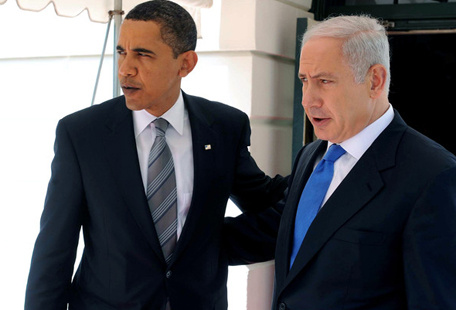Reasons Behind the West's Silence Toward Israeli Threats

Fereydoon Majlesi: In my opinion, an attack on Iran by Israel is not a real and serious threat. It seems that these threats are only in response to statements made previously which spoke of Iran's clear tendency to see Israel wiped off the map. Israel has used this statement as an excuse to have total authority to do as it pleases. We must be aware of the fact that Israel has been generally accepted in legal and international circles, and they are officially recognized as a country. Even Europe, which was famous for its opposition to the Jews during Hitler's time, regards Israel as an ally, and even considers Israel as one of their own. Therefore, these types of statements have ended up being in Israel's favor and the Israeli regime has used these statements to pretend to be in danger and to try to gather more support from the West. On the other hand, these statements have caused the whole world to be against Iran and heavy costs have been imposed on our country. Iran has paid all of these costs without having any benefits, and, at the end of the day, Israel continues to build its settlements and oppress Palestinians even more.
Therefore, Israel has not been hurt by these types of harsh statements, and it has been able to maintain its previous situation. So it tries to emphasize and propagate this issue even more so as to be able to gain even more advantages from its Western allies.
ID: Is it correct to say that Israel's stances are meant to put pressure on the US? Are they a sign of serious differences between Washington and Tel Aviv?
FM: Israeli pressure on the US is certainly effective and this can be clearly seen in decisions made by the US on the issue of Iran. In my opinion, all of the sanctions imposed on Iran, Security Council sanctions, European sanctions, etc., have all been in accordance with Israeli wishes. It seems that Iran's nuclear issue has just been an excuse to put pressure on our country. This does not however mean that officials in Washington and Tel Aviv are in total agreement. During a certain period of time, especially after the election of Barack Obama, we began seeing a rift in US-Israeli relations.
ID: You mentioned that Iran's nuclear issue is just an excuse for Israel to put pressure on Iran. Does this mean that these problems will remain even if Iran's nuclear issue is resolved?
FM: Certainly yes. Israel's provocations have led the international community to focus its attention on Iran's nuclear issue today. Even if Iran shows full cooperation in negotiations with the P5+1, we must wait and see what new excuse the international community will choose to focus on to put further pressure on Iran. Therefore, these types of threats will always exist. In my opinion, our problems with the West are not about the nuclear issue. Even if we suspend our nuclear program, they will find another excuse. Even if we suspend our missile programs, they will still find another excuse. The West's issue with Iran is about Israel, meaning that, in order to ensure Israel's security, the West utilizes different excuses to put pressure on Iran.
ID: Will these Israeli threats have any influence on Iran-P5+1 negotiations which will be held in Moscow in three weeks?
FM: This influence might be seen in the US's stances. But Iran will not back down from its position because of these threats. As it has repeatedly said before, Iran does not have any nuclear weapons or bombs, and it does not seek to obtain them. Therefore, it does not have any fear of the types of threats that Israel has always made. However, it seems that these threats will help to strengthen American positions in the upcoming meeting in Moscow. In my opinion, any behavioral changes in those involved in these negotiations will only be tactical.
ID: How have Arab countries that claim to oppose Israel reacted to these Israeli positions?
FM: With the general mood of opposition to Iran it has created on the international scene, the Israeli regime has unfortunately managed to even pit Arab countries against Iran. On the other hand, we can see that certain Arab countries look to make Iran pay the price for resistance against Israel.

